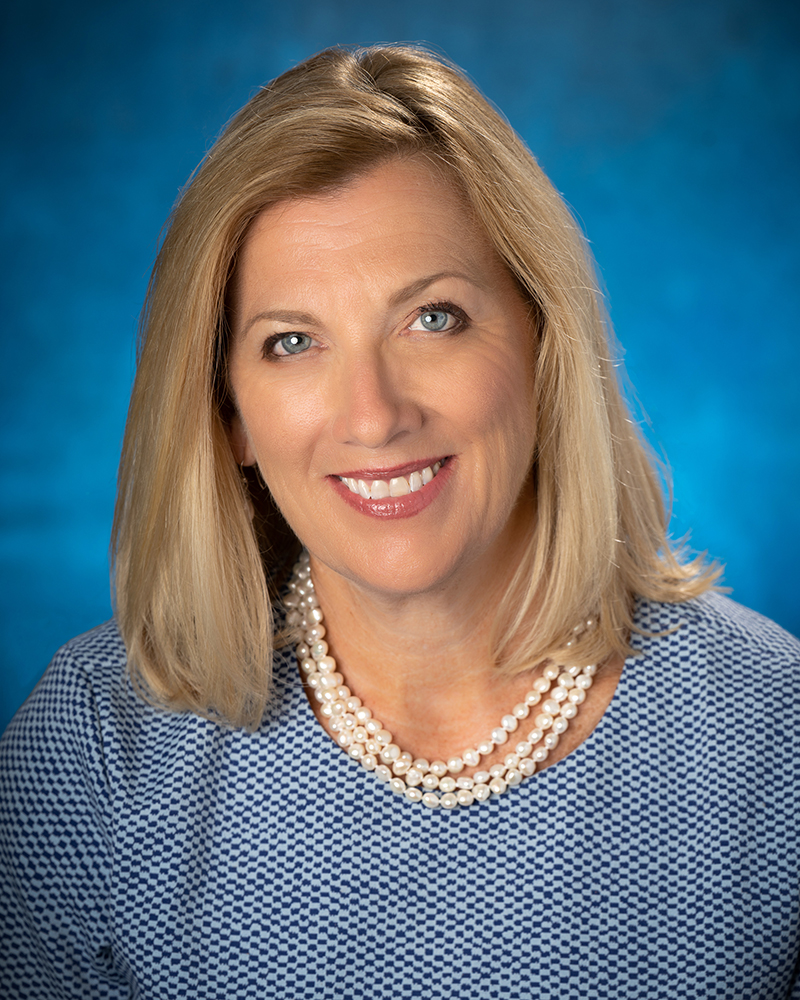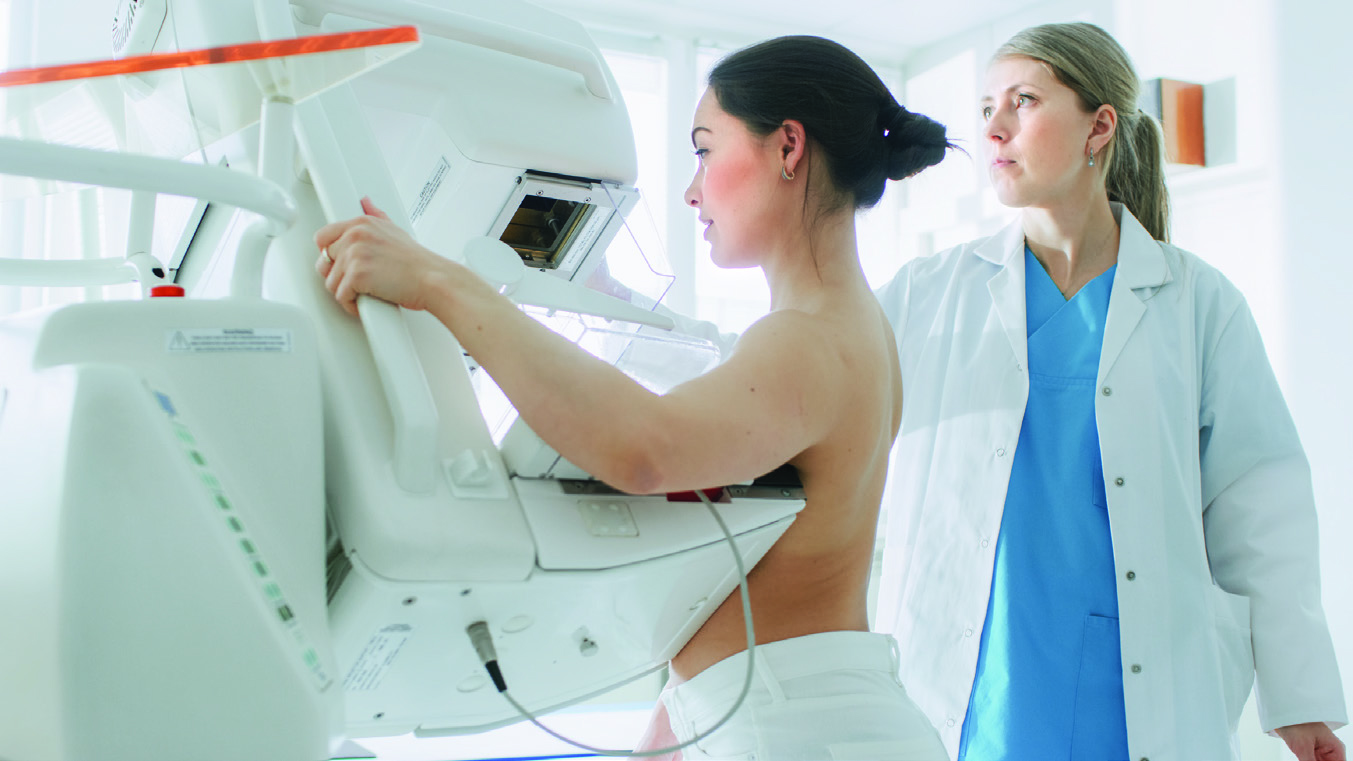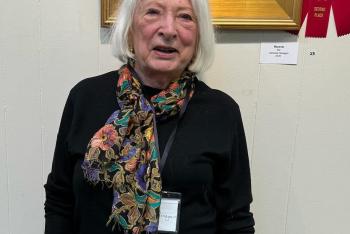For 81-year-old artist Bonnie Flanagan, an overall assessment of her health, which included a self...
Read More

Each October we recognize Breast Cancer Awareness Month – an annual reminder to educate ourselves about the risk factors and symptoms of the disease and take preventative measures to reduce our chance of diagnosis. According to the Centers for Disease Control, more than 200,000 women get breast cancer every year in the United States, and over 42,000 die from the disease. While breast cancer affects men too, it is the second most common cancer found in American women, and those over the age of 50 or with a family history of the disease are especially at risk.
However, thanks to increased awareness, education and preventative screenings, many women are catching breast cancer in its early stages.
While it’s normal for breasts to change in size and texture throughout your lifetime, especially with breastfeeding and menopause, there are some signs to be aware of that may point to cancer. One of the most tell-tale indicators is a lump or mass in the breast, but other symptoms include nipple discharge; nipple inversion (turning inward); pain in the breast or nipple; redness, scaliness or thickening of the nipple or breast skin; skin irritation; and swelling of all or part of a breast (even if no distinct lump is felt).
While it’s important to keep these risk factors and symptoms in mind, screenings – including a breast self-exam, clinical exam by your doctor and mammogram – are key to detecting the cancer in its earliest stages when it is most treatable.
Part of a breast self-exam is understanding how your breasts feel normally, so if a change does occur, you can identify and address it quickly. Additionally, Inspira offers a quick, online breast cancer risk assessment and Inspira Insight – a high risk cancer surveillance program – to assess your risk for breast cancer and other hereditary diseases from the comfort of your home.
In addition to regular self-exams, be sure to set up an annual physical to receive a clinical exam performed by your doctor as well.
While knowing the signs of breast cancer can be lifesaving, many women with the disease don’t show any symptoms. One of the best ways to detect abnor-malities and improve early detection is a mammogram. At Inspira, we use 3-D technology for mammograms which provides more detailed images of breast tissue, helps clearly identify lumps or masses that may require additional testing, and provides more precise diagnoses. All women between the ages of 45-54 should receive mammograms annually, but you can begin as early as age 40 or earlier depending on your family history.

To make an appointment for a screening mammogram at one of our eight imaging centers offering the 3-D technology, call 1-800-INSPIRA.
While we hope you stay healthy, if you do develop breast cancer, Inspira’s comprehensive approach enables our team of breast cancer care providers to provide high quality, personalized cancer care.
After having a lumpectomy for breast cancer, Swedesboro resident Karen McGowan underwent radiation therapy at Inspira Medical Center Mullica Hill. In discussions with her cancer specialists at the leading-edge cancer center on the campus, they agreed that she should have six weeks of radiation therapy. They also agreed that it would be safe to delay treatment if she wasn't comfortable starting her treatment because of the pandemic. She decided to delay her treatment because she was nervous about going to the hospital during COVID.
"My reason for delaying treatment was that I was nervous about going to the hospital during COVID. Had I known about the safety precautions, I would have started my treatments right away,” Ms. McGowan said. "As soon as you walk in the door, they give you a new mask. They take your temperature, ask you a series of questions…every single time, every single day. Then as I walked down to the Radiation Oncology Department there was a hand sanitizer dispenser; I just waved my hand under it. The doors were already open, so I didn't have to touch them. I was the only one in the waiting room.”
Ms. McGowan says she feels lucky to have a top-notch cancer center and doctors right in her backyard for her daily treatments. “I think they are really set up for success,” she concluded.
It is a privilege and an honor to serve you and the South Jersey community. Until we may have the chance to meet, stay safe and be well.

For 81-year-old artist Bonnie Flanagan, an overall assessment of her health, which included a self...
Read More
Uncover the hidden connections between your family's past and your future well-being as we delve...
Read More
Treating cancer requires an arsenal of tools and preventive measures. Explore the power of...
Read More
The material set forth in this site in no way seeks to diagnose or treat illness or to serve as a substitute for professional medical care. Please speak with your health care provider if you have a health concern or if you are considering adopting any exercise program or dietary guidelines. For permission to reprint any portion of this website or to be removed from a notification list, please contact us at (856) 537-6772